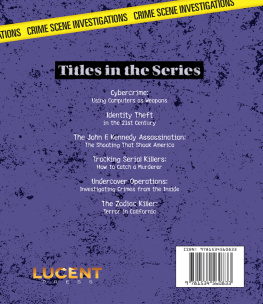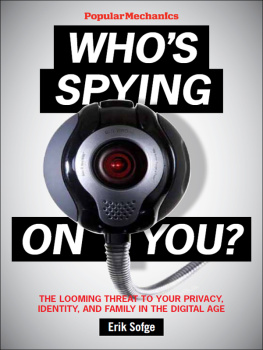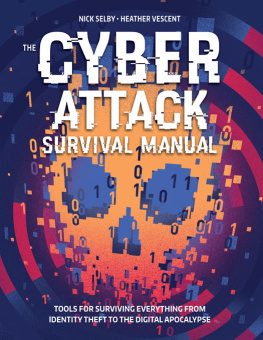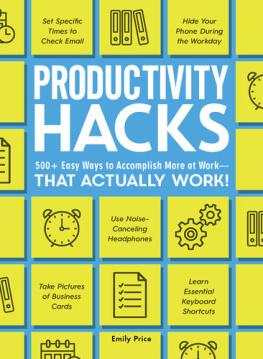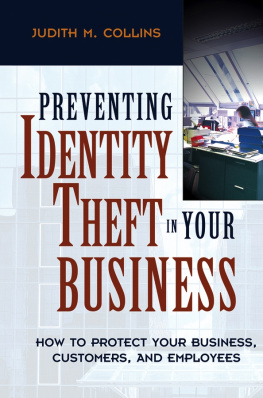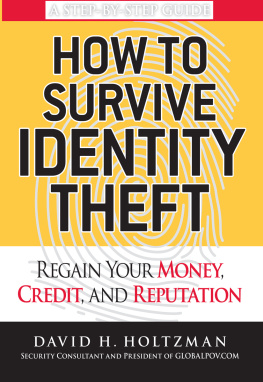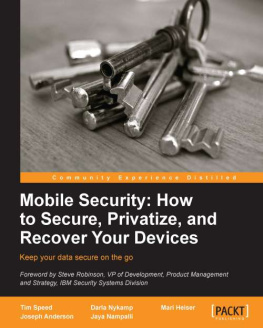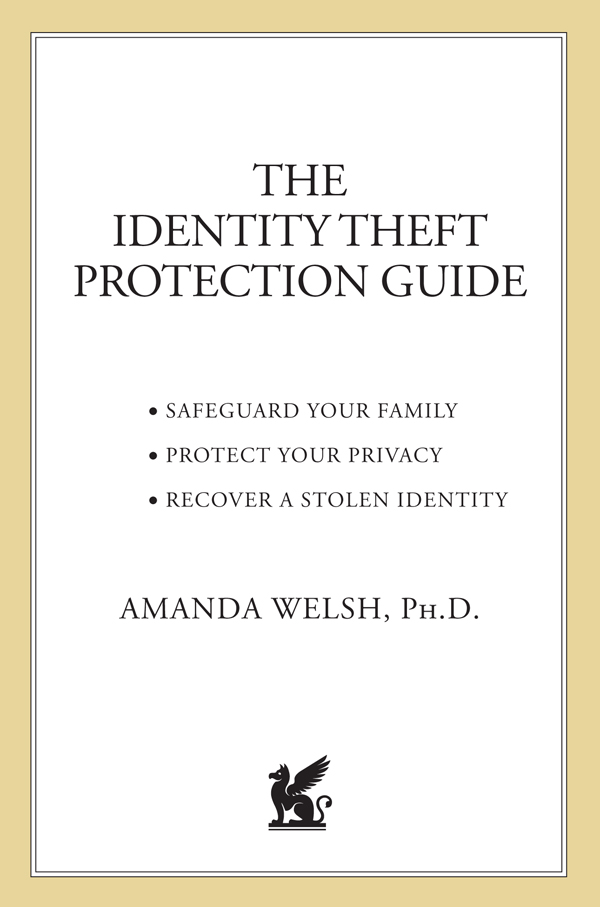Contents
Guide

The author and publisher have provided this e-book to you for your personal use only. You may not make this e-book publicly available in any way. Copyright infringement is against the law. If you believe the copy of this e-book you are reading infringes on the authors copyright, please notify the publisher at: us.macmillanusa.com/piracy.
Please note that some of the links referenced in this work are no longer active.
To my family
This book is for informational purposes only. It is not intended to take the place of legal or professional advice. If legal advice or other professional assistance is required, the services of a competent professional should be sought.
The fact that an organizations Web site is mentioned in this publication as a possible source of information does not mean that the author or publisher endorses that organization or the recommendations it may provide.
I am deeply indebted to the many individuals and organizations who have worked for so many years educating consumers and lobbying government on the issues of information collection and privacy. They do the heavy lifting for the rest of us: EPIC, PRC, ACLU, the Identity Theft Resource Center, PIRG, Junkbusters, and many more listed at the end of every chapter. While these folks may not agree with everything this book contains, I hope they find that our goals arent too far apart.
I want to thank my agent, Ted Weinstein, for keeping me focused on the issues that matter and worrying on my behalf about all the ones that dont. My thanks also to the people at St. Martins Press who put their best into what you see here: especially Sarah Delson for the cover design, Mark Steven Long for production editing, and Art Gatti for copyediting. And to Mark Fowler of Satterlee Stephens Burke & Burke LLP for his courteous, careful scrutiny of any potential missteps. To my editor, Ethan Friedman, who got so excited about the book he actually followed its advice, I am especially thankful. We can all thank Ethan for keeping the bad jokes to a minimum. (And the rest of the book coherent.)
Finally, I want to thank my mother and the rest of my family, friends, and colleagues for their enthusiasm and assistance with this project from beginning to end. Heres to all of you who supplied me with countless news clippings, stories from your neighbors, and forwarded e-mails. My husband, whose passions make the world a better place, was the biggest contributor of all. It goes without saying that his support, in all the big and little ways, is what made this whole thing possible. Well, let me say it anyway: Thank you and I love you.
One day when I was a little girl in the playground, several of the bigger kids began to taunt me. I can see your epidermis! I can see your epidermis!
I was horrified and embarrassed. With tears in my eyes, I screamed back, No you cant! and ran home as fast as I could. It wasnt until my mother reassured me that epidermis only meant skin that I could stop being afraid.
In many ways, the current furor over identity theft and privacy invasions is reminiscent of that playground experience. A few vocal crusaders are shouting to get your attention. But are they asking you to worry about something that is really wrong, or are they telling you that youre exposed in a way thats basically okay? What exactly are the dangers? And are they real?
IDENTITY
Identity theftwhen a criminal knowingly uses identifying information about you to commit, aid, or abet any action that is already illegalseems to be on everyones mind. You cant pick up a newspaper or watch a newscast without hearing about it. The chances of having your identity stolen are about the same as having an item of personal property stolenpretty impressive for a crime that was virtually nonexistent just twenty-five years ago.
You take precautions to protect your personal property from being stolen without even thinking about it. Today you must also take steps to protect your identity. But while its easy to understand what it means to have a car radio or a wallet stolen, its not so clear to many of us just exactly what identity theft is. What actually is it that gets taken?
When you stop to define it, your identity is a bit bigger than news reports might suggest. Its not just your credit card number. Its more than your drivers license, or your Social Security number, or your computer passwords.
Think of everything that makes you who you arethe things that make you unique. The fact that you like the color blue. That you read the Sunday Times and watch CNN. That you graduated from Central High School with a B average and that you like brussels sprouts. Thats your identity.
Your identity is the sum of every bit of information about you that there is. Its every action youve ever taken, every preference youve ever expressed. Its everything thats ever happened to you, everything youve ever purchased, everything youve ever written down, and everything other people have written about you.
In short, its anything at all that anyone can or might use to figure out who you are and how they will treat you as a resultwhether they will date you or do business with you or sell you things or throw you in jail or accept your kid into a school.
The issue, youll quickly discover, is that when it comes to keeping your identity safe, there is more to worry about than you might think.
IDENTITY DAMAGE
Now ask yourself whats worse: having your car stolen or having it totaled in an accident? Not much difference really, is there?
While identity theft has grabbed all the headlines, there is considerably less focus placed on identity damage even though its a potentially bigger problem. Ten million Americans are victims of identity theft each year, but many more of us are the victims of identity damage. In fact, its likely that were all victims to some degree or otherevery single one of us.
Identity damage occurs when a piece of information about you is mischaracterized, misinterpreted, or just plain wrong. These mistakes might be inconsequential, but they can also be costly. An incorrect entry in your credit report, for example, could mean you pay a higher mortgage rate than you should. An error in a medical record could deny you insurance coverage or cost you a job.
Identity damage also occurs when a piece of information about you that is absolutely true negatively affects your life or your ability to get something you want. Its possible that youre even doing this kind of damage to yourself without realizing it. Filing too many insurance claims, sending a personal e-mail from work, even being unfriendly to your neighbors can all cause identity damage if youre not careful.
Identity theft, you see, is just the tip of the iceberg.
WHAT HAPPENED TO PRIVACY?
But if these problems are so big, why are we just hearing about them now? Why didnt identity theft and identity damage pose much risk twenty-five years ago? Because back then, we had a pretty effective antidote for identity dangers: privacy. The technology to keep a watchful eye on all your actions just didnt exist. It was impractical to store much information about you, to collate it, and to share it with others. Practically speaking, even the things you did in public were really pretty private.
So, while your local grocer knew of your fondness for brussels sprouts (and who knows, may have even kept a card in a file cabinet that said so), it was doubtful that your banker or the grocer across town or even the brussels sprouts distributor knew anything about it.


